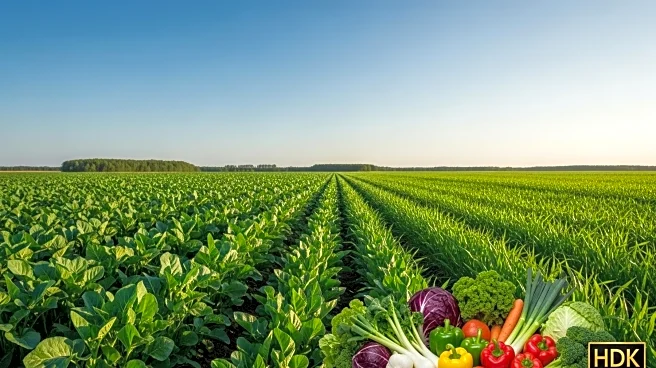What's Happening?
PepsiCo has partnered with the National Geographic Society to launch the 'Food for Tomorrow' program, aimed at promoting regenerative agricultural practices. The initiative seeks to address the unsustainable nature of global food systems, which contribute to deforestation, soil degradation, and food waste. PepsiCo aims to drive the adoption of regenerative practices across 10 million acres by 2030, an increase from its previous target of seven million acres. The program will financially support National Geographic Explorers to gather information and tell stories of communities adopting these practices. Additionally, PepsiCo is contributing to a 'Building Resilience in Agriculture Fund' to award scientific grants for projects that scale regenerative agriculture practices.
Why It's Important?
The partnership between PepsiCo and National Geographic highlights the growing importance of sustainable agriculture in addressing climate change and food security. Regenerative agriculture practices can restore soil health and natural resources, reducing the environmental impact of food production. By supporting these practices, PepsiCo aims to make businesses and farmers more resilient to climate pressures. The initiative also aligns with broader environmental sustainability goals, potentially influencing industry standards and consumer expectations. The collaboration with National Geographic leverages scientific expertise and storytelling to inspire action and drive change in agricultural practices.
What's Next?
The 'Food for Tomorrow' program will develop a dynamic data visualization and mapping tool to showcase active regenerative agriculture projects and their outcomes. The tool is expected to be publicly available on the National Geographic Society website in 2026. The 'Building Resilience in Agriculture Fund' is open to global applicants until September 30, with grant winners announced in early 2026. The initiative aims to fuel a global movement rooted in science and hope, helping build a thriving future for generations to come. PepsiCo's increased acreage target reflects its commitment to advancing sustainable practices and addressing climate challenges.









